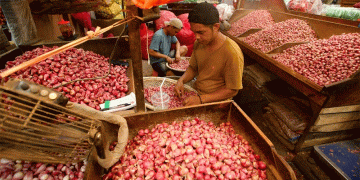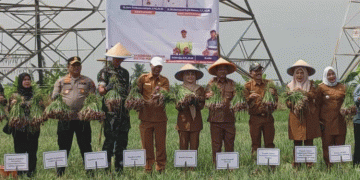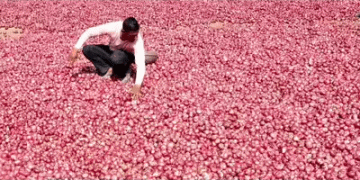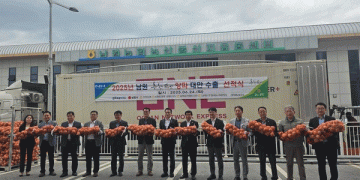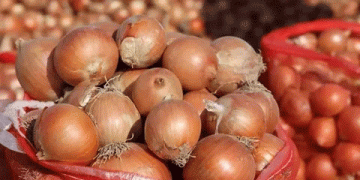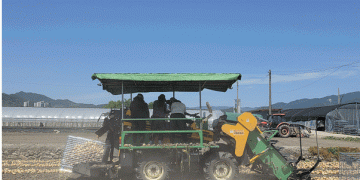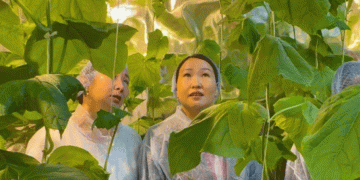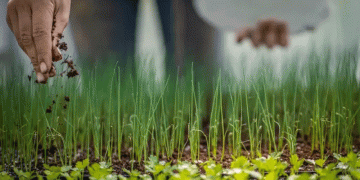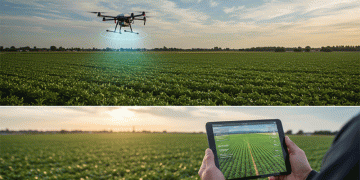#Agriculture #FoodSecurity #ExportBans #GlobalFoodSupply #FoodPrices #AgriculturalEconomics #ImportDependency #DevelopingNations #FoodDiplomacy
Nineteen countries have extended their bans on food exports until December 2023, causing soaring food prices in Bangladesh and rippling effects throughout the global food supply chain. This article explores the impact of these export bans on farmers, agronomists, agricultural engineers, farm owners, and scientists involved in agriculture.
In a startling development that has sent shockwaves through the global agricultural landscape, nineteen countries have collectively decided to extend their ban on the export of 25 essential food products until December 2023. This unprecedented move has led to a sharp increase in food prices in countries like Bangladesh and has disrupted the carefully woven fabric of the global food supply chain. In this article, we will delve into the latest data and insights surrounding this issue, shedding light on the challenges and opportunities it presents to farmers, agronomists, agricultural engineers, farm owners, and scientists working in agriculture.
The Impact on Bangladesh:
Bangladesh, a nation heavily reliant on food imports, has been hit hard by these export restrictions. Essential food items such as onions, ginger, garlic, chillies, cumin, tomatoes, carrots, and spices have seen prices surge dramatically. The ripple effect of these soaring prices has caused significant concerns about food security within the country.
According to data from Bangladesh Bank, the country imports a wide range of food products, including rice, wheat, spices, edible oil, oil seeds, pulses, sugar, and dairy and milk products. Food Secretary Ismiel Hossain emphasized that such restrictions always have an impact, prompting the government to explore alternative sources for importing essential food products. Additionally, discussions with the Indian government are underway to mitigate the impact of these bans.
The Global Food Supply Chain:
The consequences of these export bans are not limited to Bangladesh alone. The global food supply chain has been severely affected, with developing nations feeling the brunt of the disruption. Countries like India, Russia, Morocco, and Argentina, which serve as crucial sources for essential commodities, have instituted export bans and taxes, resulting in a sharp escalation in global food prices.
For instance, India imposed a ban on the export of broken rice, non-basmati rice, wheat, wheat flour, semolina, and maida in 2022, which will continue until December 31. Additionally, a 40 percent export duty on onions was introduced, further straining the global food market.
Complex Dependencies and Repercussions:
Bangladesh’s import dependency for six major products, including rice, wheat, sugar, onion, ginger, and garlic, has forced the country to seek an annual import quota from India to safeguard its food security. However, the changing landscape of export regulations has created a complex web of dependencies and repercussions.
Farm economist Prof ASM Golam Hafiz expressed concern that these restrictions jeopardize the food security of many countries, particularly those in the developing world. He noted that when exporting countries imposed bans, other nations shifted their import destinations, increasing the demand for these products and driving up prices.
A Global Phenomenon:
The export bans have not been limited to a handful of countries. Nations across the globe have imposed restrictions on various food items. Russia, Algeria, Morocco, Tunisia, Afghanistan, Azerbaijan, Argentina, Belarus, Burkina Faso, Cameroon, Kosovo, Kuwait, Lebanon, and Turkey have all taken measures to limit or tax food exports, ranging from grains and meat to vegetables and fruits.
The Path Forward:
Agriculture economist Dr. Jahangir Alam Khan stressed the chaos created in the world food market by these import restrictions, primarily affecting the food security of developing countries. He argued that developing nations should prioritize food diplomacy to secure their essential supplies from desirable food-producing countries.
In conclusion, the global food export bans have sent shockwaves through the agricultural world, with far-reaching consequences for both developed and developing nations. It is essential for stakeholders in agriculture to closely monitor these developments, engage in diplomatic efforts, and explore innovative solutions to ensure food security in this rapidly changing landscape.














